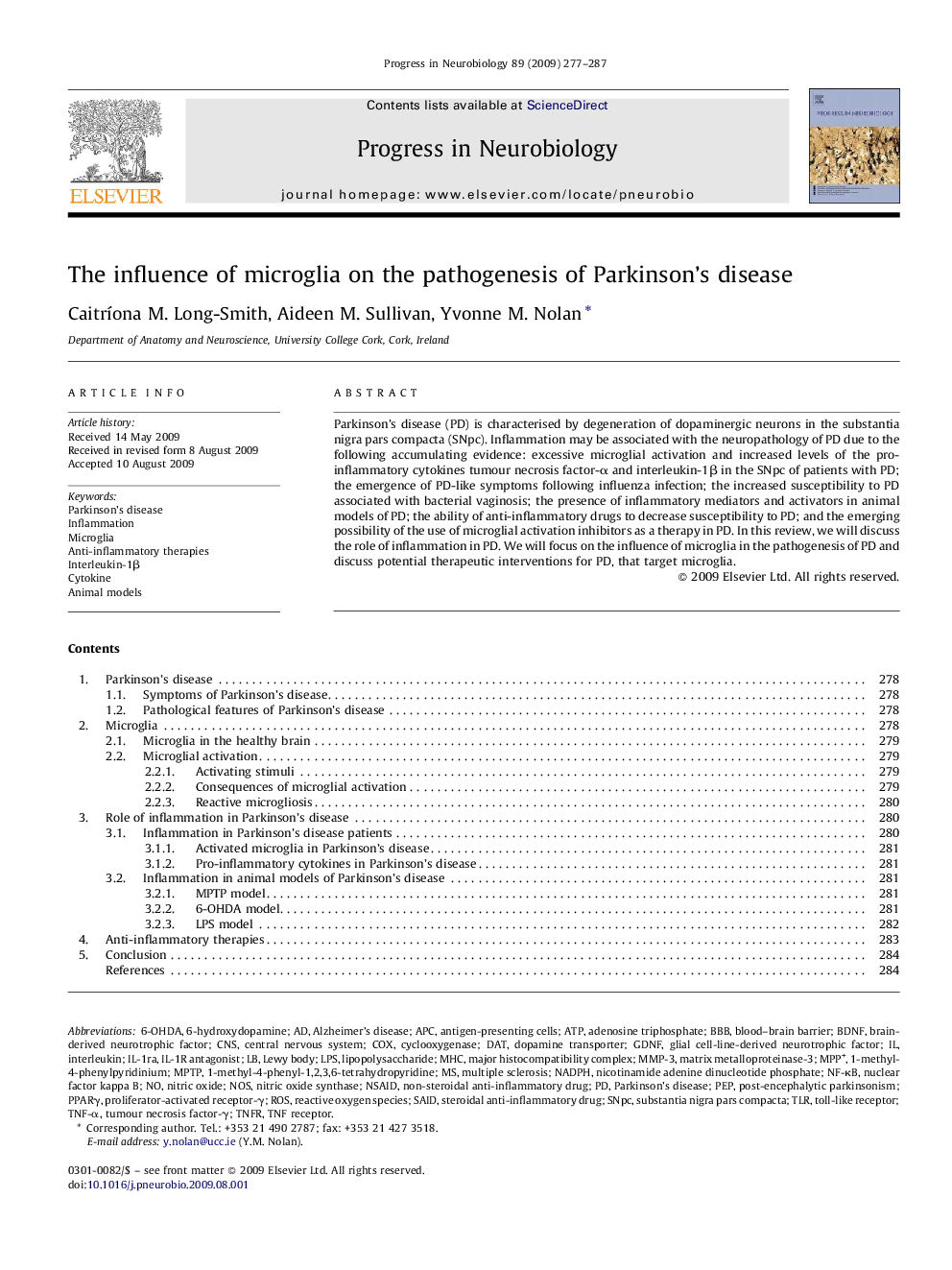| Article ID | Journal | Published Year | Pages | File Type |
|---|---|---|---|---|
| 4353754 | Progress in Neurobiology | 2009 | 11 Pages |
Parkinson's disease (PD) is characterised by degeneration of dopaminergic neurons in the substantia nigra pars compacta (SNpc). Inflammation may be associated with the neuropathology of PD due to the following accumulating evidence: excessive microglial activation and increased levels of the pro-inflammatory cytokines tumour necrosis factor-α and interleukin-1β in the SNpc of patients with PD; the emergence of PD-like symptoms following influenza infection; the increased susceptibility to PD associated with bacterial vaginosis; the presence of inflammatory mediators and activators in animal models of PD; the ability of anti-inflammatory drugs to decrease susceptibility to PD; and the emerging possibility of the use of microglial activation inhibitors as a therapy in PD. In this review, we will discuss the role of inflammation in PD. We will focus on the influence of microglia in the pathogenesis of PD and discuss potential therapeutic interventions for PD, that target microglia.
